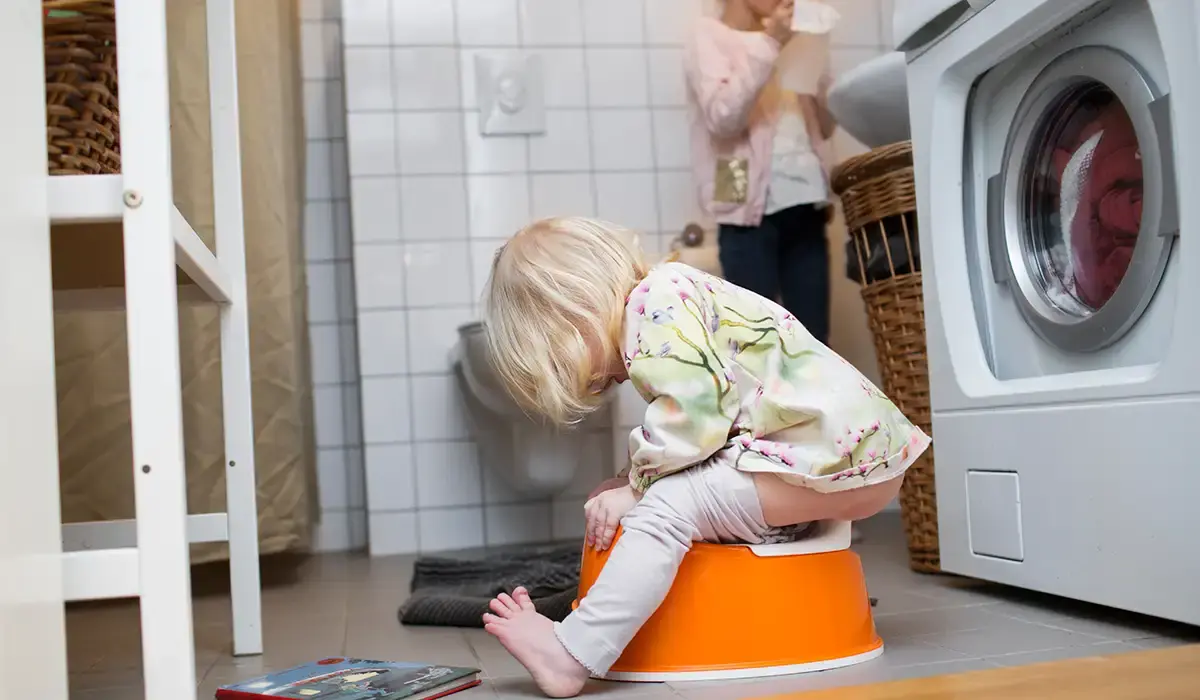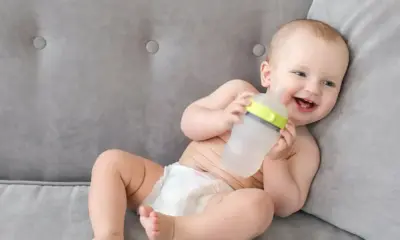Milestone
Potty Training in 3 Days: Say Goodbye to Diapers

3 Day Potty Training: How to Ditch Diapers in a Long Weekend
Potty training can be a stressful milestone, but the 3 Day Potty Training method offers a fast, focused solution.
What Is 3 Day Potty Training?
The 3 Day Potty Training method eliminates diapers in just three days through a structured, immersive toilet training experience.
Parents follow their toddlers closely, ditch diapers, encourage potty use, and celebrate each success to reinforce positive behavior.
Lora Jensen popularized the method with her book, which introduced parents to structured 3 Day Potty Training principles using consistency and praise.
Key Benefits of 3 Day Potty Training
This method saves money, reduces waste, and builds independence quickly when toddlers transition from diapers to underwear successfully.
You bond with your child during the process, giving focused attention while encouraging responsibility and celebrating every little success.
3 Day Potty Training is especially helpful for working parents who can dedicate a weekend to focused training.
While the foundation forms in three days, parents must stay consistent afterward to reinforce learning and build lasting potty habits.
When Should You Start 3 Day Potty Training?
Experts say toddlers show potty readiness between ages two and three when they can communicate and follow simple bathroom routines.
Signs include dryness for two hours, interest in using the potty, pulling pants down, and knowing when they need to go.
Start when your child consistently shows multiple signs of readiness rather than based on an arbitrary age or deadline.
Avoid forcing potty training too early, as premature attempts may create resistance, fear, or lead to negative associations with toileting.
What Do You Need for 3 Day Potty Training?
Prepare a potty chair, extra underwear, snacks, drinks, and cleaning supplies for accidents before starting 3 Day Potty Training.
Floor-level potties help children maintain proper posture and support their pelvic muscles when sitting on the toilet.
Remove distractions like electronics and make potty time feel relaxed, rewarding, and free from stress or anxiety for both parties.
Praise is more effective than punishment, so consider a sticker chart or small treats to celebrate every potty victory positively.
Step-by-Step Guide to 3 Day Potty Training
Day 1: Introduce the Process
Start early, discard diapers together, and let your toddler go bare-bottomed to increase body awareness and potty success chances.
Watch your child carefully, looking for potty cues, and guide them calmly and directly to the toilet every time.
Celebrate any success, even partial, by clapping, praising, or offering a sticker or treat to reinforce the new behavior.
Limit distractions and avoid outings so you can stay focused on your toddler’s cues throughout the day and intervene quickly.
Day 2: Build the Habit
Continue the process by reinforcing routine and providing lots of fluid and potty opportunities throughout the day.
Encourage communication by modeling the language of potty time, helping them say when they need to use the toilet.
Gradually introduce easy clothing and keep the potty chair nearby during activities to make access easy and quick.
Remain calm during accidents, help them clean up, and remind them gently where the pee and poop should go.
Day 3: Practice Independence
By now, your child should begin to connect body signals with actions, helping them take initiative more independently.
Encourage trying the potty before leaving the house or starting new activities to reinforce consistent routines throughout the day.
Use short outings to practice using public restrooms or a portable potty without reverting back to diapers or pull-ups.
Remember, the goal is to lay the groundwork for long-term success, not achieve perfection in three days alone.
Post-Training Success Tips
Some parents prefer to wait on underwear until their toddler uses the potty consistently, while others introduce it immediately.
Avoid switching back to diapers, even during minor setbacks, to prevent confusion and maintain potty progress.
Communicate with caregivers, babysitters, and daycare staff to ensure consistent messaging and reinforcement of potty habits.
Avoid harsh reactions to accidents, and treat each as a learning opportunity while maintaining encouragement and reassurance.
Common Challenges and How to Overcome Them
Some toddlers show initial resistance, so don’t panic if 3 Day Potty Training takes longer than expected or needs a restart.
Nighttime dryness often comes later, and that’s okay—handle overnight training separately and reduce bedtime drinks to assist.
If your child has frequent accidents or avoids the potty completely, they may not be developmentally ready yet.
Stay flexible and revisit potty training later if your child shows signs of stress, regression, or emotional resistance.
What If 3 Day Potty Training Doesn’t Work?
If your child resists potty training entirely, step back and reassess readiness signs before restarting in a few weeks.
Children develop at different paces, and forcing potty training prematurely can backfire, delaying long-term success.
Stick to your routine, stay calm during regressions, and offer reminders and encouragement rather than pressure or punishments.
Many parents experience setbacks before full success, so don’t lose confidence in your chosen method or your toddler’s ability.
Real Parent Success Stories and Tips
Parents say removing rugs and staying home all weekend made a big difference during their successful 3 Day Potty Training experience.
Others shared that offering tiny rewards or sticker charts motivated their children to keep trying, even after early accidents.
Going outside with a portable potty helped maintain progress and prevent regression when leaving home during early training days.
Many parents noted poop training took longer, so don’t worry if bowel movements follow a slower learning curve than urination.
Final Thoughts on 3 Day Potty Training
3 Day Potty Training can work well with preparation, patience, and a positive mindset from both the child and parent involved.
Celebrate progress, reinforce routines, and maintain consistency to build successful potty habits that will last a lifetime.
Don’t compare your child’s journey to others’—each toddler develops differently and needs their own unique approach and timeline.
Remain supportive and trust your instincts when adapting 3 Day Potty Training techniques to fit your child’s personality.
Explore more helpful parenting tips and toddler training solutions on this website for your next developmental milestone journey!












